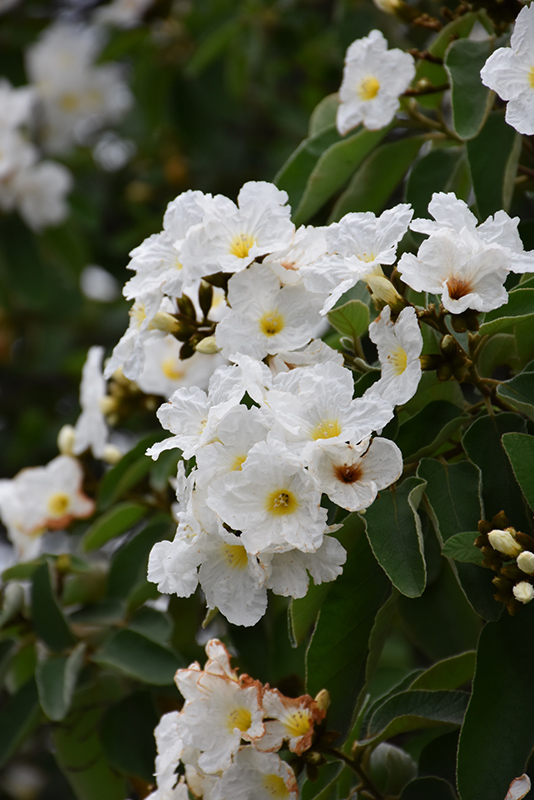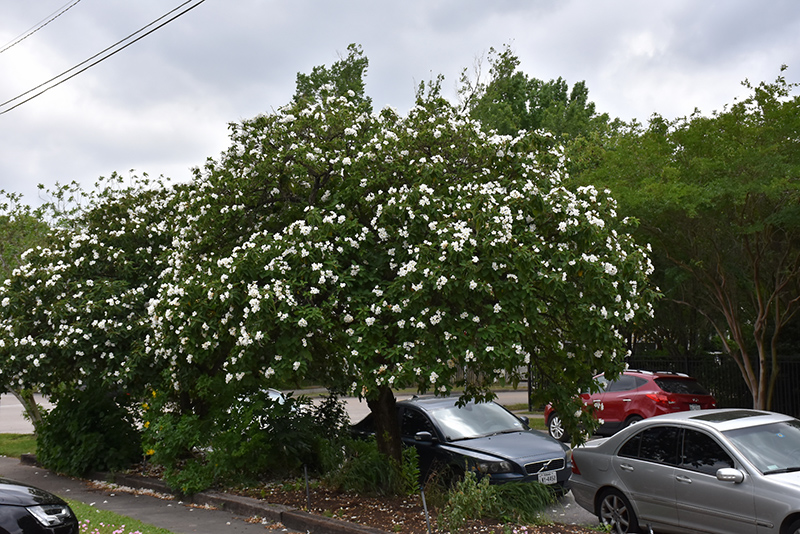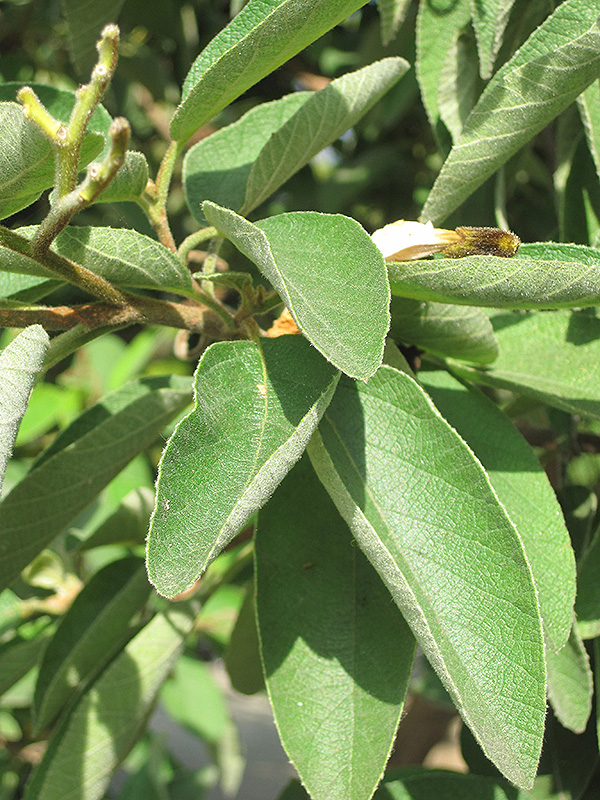Height: 20 feet
Spread: 20 feet
Sunlight:
![]()
Hardiness Zone: 8a
Other Names: Mexican Wild Olive, Anacahuita, White Cordia
Description:
An evergreen large shrub that can be trained as a single stem tree; clusters of white, trumpet shaped flowers cover the branches in spring, and then sporadically all year; yellow-green olive-like fruits in summer; a great accent choice for the landscape
Ornamental Features
Texas Wild Olive features showy white trumpet-shaped flowers with gold throats along the branches from late spring to early summer. It has grayish green foliage with gray undersides. The fuzzy pointy leaves remain grayish green throughout the winter. The fruits are showy chartreuse drupes displayed in mid summer. The fruit can be messy if allowed to drop on the lawn or walkways, and may require occasional clean-up.
Landscape Attributes
Texas Wild Olive is a multi-stemmed evergreen tree with an upright spreading habit of growth. Its average texture blends into the landscape, but can be balanced by one or two finer or coarser trees or shrubs for an effective composition.
This tree will require occasional maintenance and upkeep, and should only be pruned after flowering to avoid removing any of the current season's flowers. It is a good choice for attracting birds, bees and butterflies to your yard. Gardeners should be aware of the following characteristic(s) that may warrant special consideration;
- Messy
Texas Wild Olive is recommended for the following landscape applications;
- Accent
- General Garden Use
Planting & Growing
Texas Wild Olive will grow to be about 20 feet tall at maturity, with a spread of 20 feet. It has a low canopy with a typical clearance of 1 foot from the ground, and is suitable for planting under power lines. It grows at a slow rate, and under ideal conditions can be expected to live for 50 years or more.
This tree should only be grown in full sunlight. It prefers dry to average moisture levels with very well-drained soil, and will often die in standing water. It is considered to be drought-tolerant, and thus makes an ideal choice for xeriscaping or the moisture-conserving landscape. It is not particular as to soil type or pH, and is able to handle environmental salt. It is highly tolerant of urban pollution and will even thrive in inner city environments. Consider applying a thick mulch around the root zone in winter to protect it in exposed locations or colder microclimates. This species is native to parts of North America, and parts of it are known to be toxic to humans and animals, so care should be exercised in planting it around children and pets.



